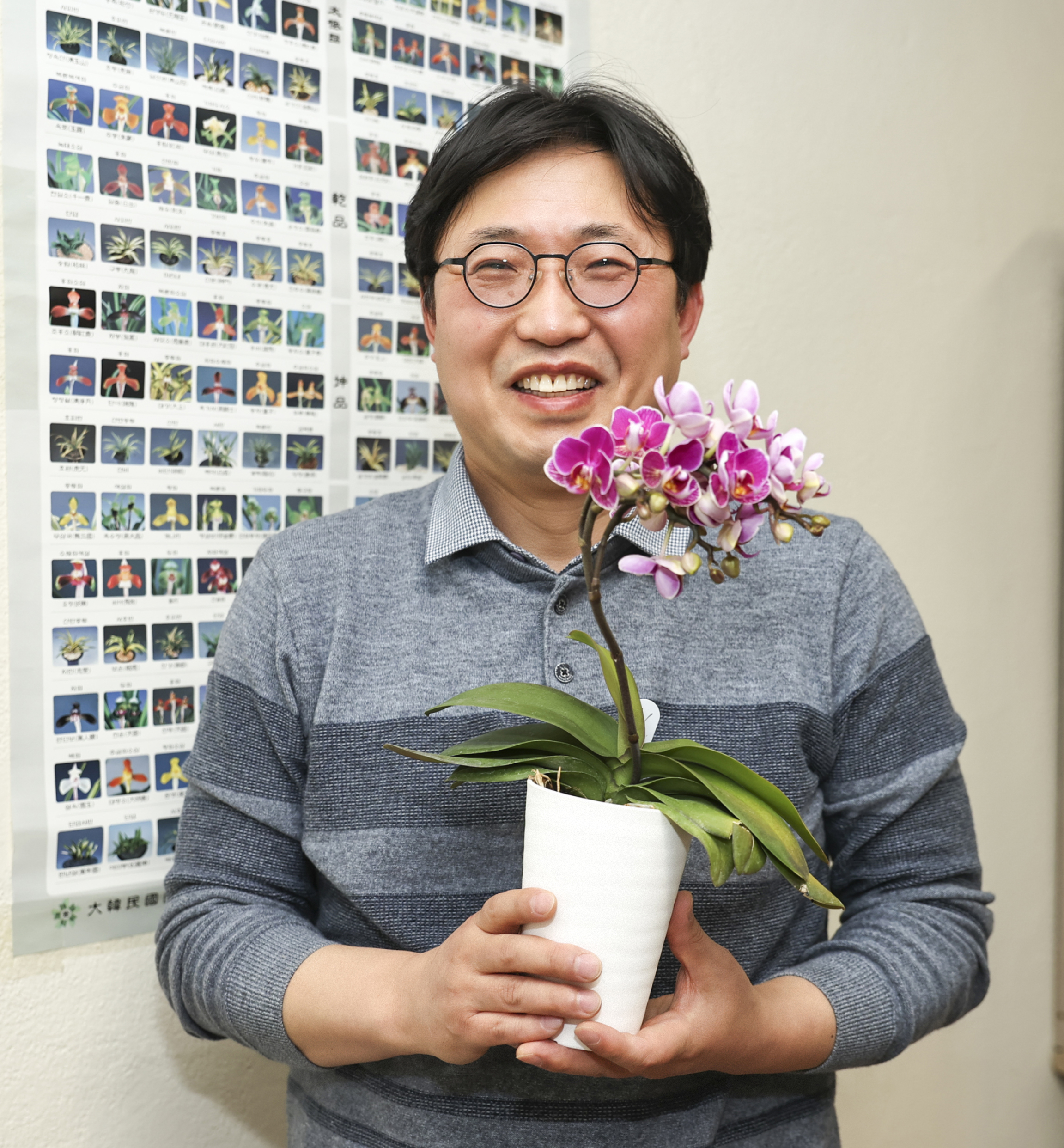YU Opens Export Channels for Floriculture Farms through Industry-Academic Cooperation! N
No.89325- Writer pr
- Date : 2021.03.10 13:22
- Views : 8527
‘Phalaenopsis’ cultivated at a floriculture farm in Ulsan exported to US for the first time... Expected to export 100,000 flowers this year
Creating a stable profit model for farms as it has small variability and it is possible to continuously export at large quantities

Phalaenopsis cultivated at the floriculture farm Songjeong Garden in Ulsan was exported for the first time to the US in February. A total of 100,000 Phalaenopsis flowers will be exported to the US this year from this farm. Phalaenopsis is known for its flower that looks like butterflies, and it is a popular because of its extravagant beauty.
The role of YU Dep. of Horticulture & Life Science Professor Park Gyeong-il (52) was decisive for making it possible to export. Prior to 2017, it was impossible to export Phalaenopsis in pots to the US, but exports became possible after making agreements on quarantines with the US after 2017. However, there were no qualified cultivation greenhouses that met the quarantine standards in Korea at the time, and it was necessary to develop technologies such as for the production and cultivation of seeds and seedlings, transportation pre-treatment, transportation, and transportation post-treatment.
Professor Park's research team began the project in 2017 with the Institute of Planning and Evaluation for Technology in Food, Agriculture and Forestry (IPET) and constructed greenhouses that were suitable for exporting to the US after receiving approval from the US Dep. of Agriculture for two farming corporations located in Taean (Sangmiwon Farming Cooperative) and Dongducheon (Dongcheonnanwon) in 2018, thereby procuring an export channel. In 2019, Phalaenopsis was exported for the first time in pots and it constructed the third greenhouse at Songjeong Farm in Ulsan last year to begin exports in February of this year.
Currently, the YU research team is carrying out industry-academic cooperation projects with Konkuk University and four agricultural corporations. Professor Park carried out the first sub-project ‘Selection of Korean Phalaenopsis varieties for exporting to the US and development of high-quality plantling production technology,’ while also overseeing all five sub-projects.
The domestic flower market has a small market and high price volatility and floriculture farms are currently on the brink of extermination due to the years of slow economy and the spread of COVID-19 since last year. If floriculture farms collapse and it becomes necessary to depend on import flowers, prices will rise and become a greater burden for consumers. Furthermore, if floriculture farms switch to other crops such as vegetables or fruits, it can have an impact on the entire agriculture market.
Professor Park said, “The flower export market has lower prices than in Korea, but volatility is smaller and it can continuously take in large amounts, thereby making it possible to create stable profits through economy of scale.” He added, “Exports of Phalaenopsis to the US will revitalize the domestic flower industry and not only present a stable profit creation model of floriculture farms, but also stabilize the agriculture consumption market,” as he explained the outcomes of the recent industry-academic cooperation.